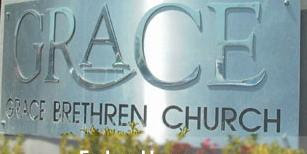
Let me throw this thought out there for any of you from the College Community who might be checking my blog now that the new college website is up. (Props to Jon Phelps for all his hard work on retooling the website.) In this post, I want to offer a lens (only one amongst many) to you for interpreting the Transforming Grace project our church community is currently undertaking. I would like to suggest to you that Transforming Grace is more than simply a project of remodeling for the sake of comfort, beauty, and function. It is instead an embodied critique of modernity and Cartesian ideology. The foundational philosophical epistemology inherent to the modern project is concisely expressed in Descartes’ (in)famous dictum: “I think, therefore I am.” The world is construed upon the foundation of the thinking self. It is the mind, and the world of thought, that is preeminent. Thus, it follows that the physical component of reality becomes only tertiary as a substantial component of reality and the world, at best. If we operate from this modern ideology then we are left with the quite uncompelling reasons of comfort, beauty, and function for the Transforming Grace project. The uncompelling nature of these reasons are highlighted further in the face of the prevalent poverty of both Long Beach and the world. But I think if the reason for the Transforming Grace project is an embodied critique of the modern, Cartesian ideology so dominant in the West then we might have a more theologically compelling lens for interpreting the project. This post is already getting too long, so I will not outline all the reasons why modernity need be critiqued. Let me just say that modernity, which finds its most robust expressions in the oppressive metanarratives of the last hundred years including fascism, Marxism, and global capitalism, is arguably more hostile to God’s good creation than many of the devastating social injustices that inhabit the world, because of the simple fact that it quite possibly is the purveyor of such injustices. All this being said, let me with the utmost brevity explain how the Transforming Grace project critiques modernity. Holding in mind what I noted earlier about Cartesian ideology, we can understand Transforming Grace as an affront to any such ideology which does not take seriously the physical world. Transforming Grace is a project founded upon the premise that the physical world actually matters. The mind and the world of ideas is not the chief component of reality. The world is actually deeply physical. This is the primary proclamation of the Transforming Grace project: physical space matters to God! This announcement flies in the face of the Cartesian dictum so foundational to modernity. Through taking seriously the physical space entrusted to our community by God, we announce the good news that modernity and all its evils do not have the final word. “Another world is possible!” This is how we might hear the message of the Transforming Grace project.
(This is a short post for a huge subject, so please give me some grace for my omissions and indulgences. I would like your thoughts on the Transforming Grace project. Also, do you find this lens for interpreting the project compelling?)
1 comment:
I'd like to hear some more about this beast called modernity. I think Transforming Grace can act as a strong critique of the minimization/rejection of the physical reality, but I'm not sure that that is the primary statement of modernity on the campaign. Doesn't this same modernity that de-emphasizes physicality also drive a continual quest for the newer/bigger/better? If so, and if our primary goal in the campaign is to critique modernity, then I think $5.5mil is giving up substantial ground to the critiqued party right off the bat...
Instead, I think aspects of modernity are implicitly cited and celebrated whenever we make use of new technology and aesthetics, even when we use those to celebrate a Creator God that utterly flouts modernity's glorification of the power of the individual. Just as we can use post-modern language, critiques and tensions without falling into utter relativism, I think we can differentiate between the machinery of modernity and its rejection of the physical. Maybe then modernity doesn't need to be the enemy of the story... after all, we can love a man while disagreeing with his politics and philosophy...
Post a Comment